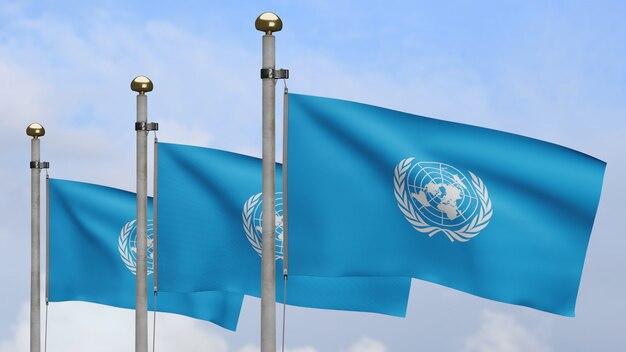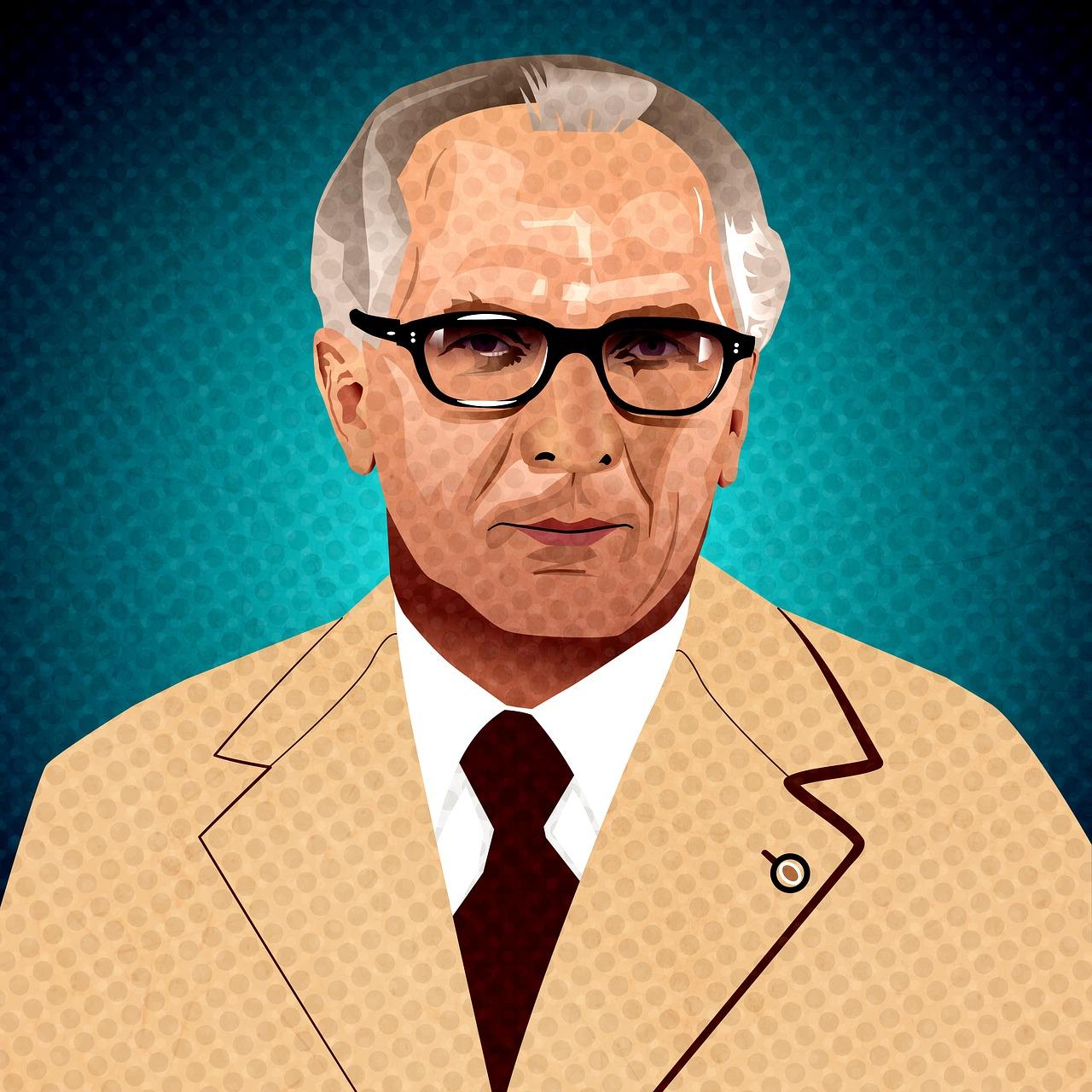The United Nations (UN) is a global organization founded in 1945 with the aim of promoting international cooperation and resolving conflicts. At its helm is the Secretary-General, a crucial figure who serves as the organization’s chief administrative officer and diplomatic representative. With an extensive range of responsibilities, the Secretary-General plays a key role in shaping the course of global affairs.
In this blog post, we will delve into the intriguing world of UN Secretary-Generals. We will explore how many individuals have held this prestigious position throughout history, discuss the current Secretary-General, and explore the potential implications if a country were to leave the UN. Additionally, we will address captivating questions such as the recognition of Taiwan as a country, countries that have been ousted from the UN, the real power held by the organization, and the composition of the influential “big 5” countries within the UN. Furthermore, we will touch upon the six organs of the UN and the possibility of a female Secretary-General. So, let’s embark on this informative journey and unravel the secrets behind the United Nations Secretary-Generalship.

How Many UN Secretary Generals are There?
Did you know there have been a total of nine United Nations (UN) Secretary Generals? That’s right, this handful of individuals have taken on the monumental task of leading the world’s most important international organization. Let’s take a closer look at these remarkable individuals who have held this prestigious position.
The Pioneering Secretary General: Trygve Lie
The UN’s first Secretary General, Trygve Lie, from Norway, served from 1946 to 1952. He navigated the difficult early years of the organization, handling critical issues like the Korean War and the establishment of Israel. It’s said that the world under his leadership resembled a political tightrope walk, where one misstep could have dire consequences.
Diplomacy at its Finest: Dag Hammarskjöld
Dag Hammarskjöld, hailing from Sweden, assumed the role of Secretary General in 1953 and held it until 1961. Known for his calm and diplomatic demeanour, Hammarskjöld became a legend for his work in peacekeeping and conflict resolution. Sadly, he lost his life in a tragic plane crash while on a peace mission in Africa. His legacy lives on as a monument to his unwavering dedication to a better world.
U Thant: The Symbol of Neutrality
Born in Myanmar (formerly Burma), U Thant took office as the UN Secretary General in 1961 and held the position until 1971. His tenure coincided with tumultuous times, encompassing the Cuban Missile Crisis and the height of the Vietnam War. U Thant was admired for his neutrality, proving that even in the midst of chaos, a calm and collected leader can influence the course of history.
An Austrian Visionary: Kurt Waldheim
Kurt Waldheim, the first Secretary General from Austria, served from 1972 to 1981. His leadership witnessed significant developments such as the admission of new member states, including Namibia and Papua New Guinea. However, controversy later surrounded Waldheim, with allegations of his involvement in Nazi activities during World War II, casting a shadow on his legacy.
From Peru to the UN: Javier Pérez de Cuéllar
Hailing from Peru, Javier Pérez de Cuéllar assumed the role of Secretary General in 1982 and served until 1991. He played a crucial role in mediating conflicts in Central America, notably in Nicaragua and El Salvador. Pérez de Cuéllar was a true embodiment of the UN’s commitment to peace and global cooperation.
Boutros Boutros-Ghali: A Force for Change
Boutros Boutros-Ghali from Egypt held the position of Secretary General from 1992 to 1996. During his term, he pushed for important UN reforms and played an instrumental role in having the General Assembly take on a more prominent role in decision-making. However, his tenure was not without controversy, and he faced criticism for the UN’s handling of the Rwandan genocide.
Kofi Annan: A Beacon of Hope
Kofi Annan, hailing from Ghana, assumed office in 1997 and served as Secretary General until 2006. During his remarkable tenure, he focused on combating poverty, championing human rights, and addressing the HIV/AIDS pandemic. Annan received the Nobel Peace Prize in 2001 for his dedicated efforts to promote international peace and cooperation.
Ban Ki-moon: Guiding the Global Agenda
From South Korea, Ban Ki-moon served as Secretary General from 2007 to 2016. Leading the UN during a period marked by global economic challenges and environmental crises, he strove to eradicate poverty, advance gender equality, and combat climate change. Ban Ki-moon remained a steadfast advocate for peace, ensuring the UN’s work had a positive impact on millions worldwide.
The Current Secretary General: António Guterres
Since 2017, António Guterres, hailing from Portugal, has been at the helm of the UN. With a strong focus on conflict prevention, sustainable development, and gender equality, Guterres has been dedicated to making the UN more efficient and effective. In recognition of his efforts to promote peace and address global challenges, Guterres was re-elected for a second term in 2022.
In conclusion, these nine remarkable individuals have left indelible marks on the world through their leadership as UN Secretary Generals. From fostering peace to advocating for justice and equality, they have played pivotal roles in shaping the global agenda. As we look to the future, it’s crucial to remember the contributions of these trailblazers in our quest for a better tomorrow.

FAQs about UN Secretary Generals
When it comes to the United Nations (UN) and its Secretary-General, a variety of questions and curiosities arise. In this comprehensive FAQ-style guide, we’ll address some of the most commonly asked questions about the UN Secretary-General and shed light on their role and the organization’s dynamics. So, let’s dive right in and find answers to your burning queries!
Who is the Current UN Secretary-General
As of 2023, the esteemed position of the UN Secretary-General is held by António Guterres. This former Portuguese prime minister took office in January 2017 and continues to lead the international organization’s efforts in promoting peace, security, and cooperation among nations.
What Would Happen if a Country Left the UN
Ah, the “exit” dilemma! If a member nation decides to leave the United Nations, they would lose out on the manifold benefits of membership, such as participating in global decision-making, accessing humanitarian aid, and engaging in diplomatic talks. Essentially, it would be like missing out on a delightful international potluck. So, while countries are free to say “adios” to the UN, it’s safe to say they would be skipping out on a world of opportunities.
How Many UN Secretary Generals Are There
Buckle up, folks, because we’re about to count! Since the establishment of the United Nations in 1945, there have been a total of nine Secretary-Generals. From the efficient and diplomatic Trygve Lie, who kicked off the tenure in 1946, to the current dynamic leader, António Guterres, each Secretary-General has left their mark on the world stage, striving to create global harmony.
Does America Recognize Taiwan as a Country
Now, this topic can stir up quite a debate! The United States chooses to maintain diplomatic relations with the People’s Republic of China and, therefore, does not officially recognize Taiwan as a separate country. However, it’s worth noting that Taiwan operates as a de facto independent state, with its own government, vibrant culture, and flourishing technology industry. So, whether or not Taiwan is considered a country depends on who you ask!
What Countries Have Been Kicked Out of the UN
Feeling the burn from the “you’re out” card? To date, no country has been on the receiving end of a UN expulsion. However, there have been instances where states have chosen to leave voluntarily, such as Indonesia in 1965 (returning in 1966) and South Africa in 1974 (rejoining in 1994). So, while the UN hasn’t shown anyone the door, there have been a few who temporarily stepped outside for some fresh air before returning to the international party.
Does the UN Have Any Real Power
Ah, power, the eternal question! The United Nations operates on a system of international cooperation, striving to create consensus and encourage dialogue among member nations. While the UN possesses influential tools like peacekeeping missions and resolutions, its power primarily stems from the collective will and commitment of its member countries. So, in a way, the UN’s strength lies in the superpower of unity and collaboration.
Is Taiwan a Country: Yes or No
Ah, the million-dollar question! Taiwan is an island that operates independently under its own government and has its own distinct culture, language, and flag. However, due to political sensitivities and differing international stances, the official recognition of Taiwan as a country remains a complex and evolving matter. So, whether you consider Taiwan a country or not may depend on how much you enjoy entering the political rabbit hole!
Who Are the Big 5 in the UN
Introducing the crème de la crème of the UN! The Big 5, also known as the P5, consist of five permanent members of the UN Security Council. These global heavyweights are the United States, Russia, China, France, and the United Kingdom. With their permanent seats and veto power, these nations possess significant influence in shaping international policies, a bit like the cool kids at the UN lunch table.
What Are the Six Organs of the UN
Time for a quick UN organ recital! The United Nations functions through six principal organs:
1. General Assembly
This is where all member countries gather, giving each nation an equal voice (or at least a microphone) to discuss global issues, propose resolutions, and engage in some good old-fashioned diplomatic networking.
2. Security Council
As mentioned earlier, this is where the Big 5 hold sway. The Security Council is responsible for maintaining peace and security worldwide, whether by sending peacekeepers or discussing measures to handle international crises.
3. Economic and Social Council
If you’re a fan of sustainable development, human rights, or just getting social, this organ focuses on fostering international cooperation to address economic, social, and environmental challenges. Think of it as the UN’s social planner.
4. Secretariat
Headed by our beloved Secretary-General, the Secretariat acts as the administrative arm of the UN. It ensures the smooth functioning of the organization, coordinates efforts, and helps keep things running like a well-oiled international machine.
5. International Court of Justice
When nations need to settle their differences without resorting to fisticuffs, they turn to the International Court of Justice, aka the World Court. This legal organ resolves disputes within the boundaries of international law.
6. Trusteeship Council
Think babysitter, but for former colonies. The Trusteeship Council assists territories that have not yet achieved self-government, providing guidance and support until they’re ready to venture out into the big, independent world.
Has There Ever Been a Female UN Secretary-General
You bet! In fact, the United Nations has yet to name a male UN Secretary-General in 2023. Wondering when the glass ceiling was shattered? It was back in 2006 when the exceptionally capable and charismatic diplomat, Ban Ki-moon, passed the baton to the inspiring and formidable leader, António Guterres. So, here’s to breaking gender barriers and embracing diversity at the helm of the United Nations!
We hope this amusing and informative FAQ section has answered some of your burning questions about the UN Secretary-General and shed light on various intriguing aspects of the United Nations. From the current Secretary-General to the UN’s power dynamics, its organs, and even Taiwan’s complicated status, the UN remains an ever-evolving hub of international cooperation, conflict resolution, and a touch of diplomatic charm.
